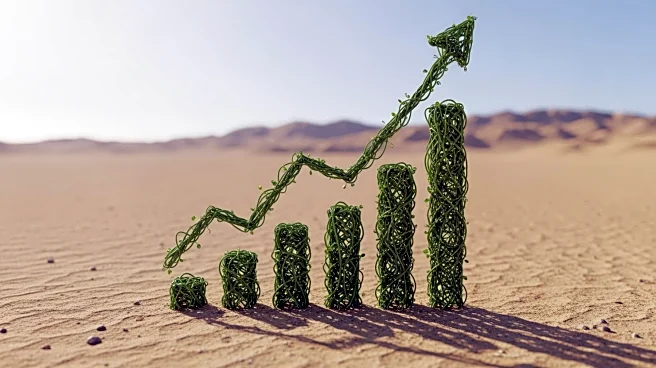What's Happening?
Bolivia's international bonds have rallied ahead of a fiercely contested presidential election, fueled by investor hopes that a political shift could help stabilize the country's fragile economy. The nation is
facing a crisis marked by high inflation, dwindling dollar reserves, and a fiscal squeeze. Despite these challenges, Bolivia's bonds have returned over 30% since the start of 2025, making them top performers in JPMorgan's emerging markets bond index. Investors are optimistic that a change in government could pave the way for an IMF program and economic reforms.
Why It's Important?
The bond rally reflects investor speculation that a political shift could unlock stalled IMF programs and restore central bank autonomy. A change in government is seen as potentially positive for Bolivia's economy, which has been on an unsustainable fiscal and current account position for years. However, the country's external debt amounts to $13.3 billion, and political infighting and falling gas export revenues could jeopardize its ability to service upcoming debt payments. The outcome of the election will be crucial in determining Bolivia's economic future.
What's Next?
The upcoming presidential election will determine Bolivia's political direction and its ability to implement necessary economic reforms. If a center-right candidate wins, Bolivia may see increased foreign investment and regulatory changes, particularly in the mining sector. However, the new administration will face challenges in addressing the country's high inflation, dwindling dollar reserves, and external debt. The potential for an IMF program could provide financial support and help stabilize the economy, but it would require painful measures such as subsidy cuts and fiscal austerity.
Beyond the Headlines
Bolivia's political and economic situation highlights broader issues in emerging markets, where political uncertainty and economic fragility can significantly impact investor sentiment. The country's reliance on gold sales to meet foreign debt obligations underscores deeper structural weaknesses. The political shift could lead to improved relations with the United States and other international partners, potentially opening doors for more comprehensive economic support and collaboration.








